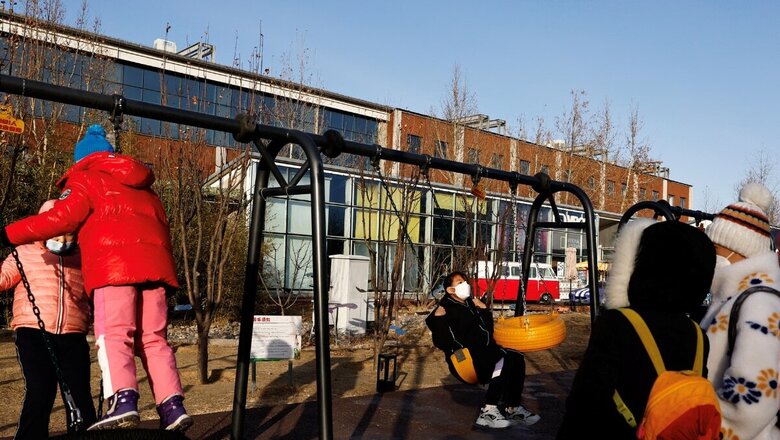
views
A recent research shows that the increase in mental health disorders among school-aged children and teens is linked to a lack of opportunities for children and teens to play, roam and engage in activities independently, without the “direct oversight and control by adults.
The research further states that parents depriving children of independence contributes to record levels of anxiety, depression, and suicide among young people.
Recently, a South Indian actor’s teenage daughter too ended her life owing to depression for which she was under treatment. Chennai police had discovered a suicide note in the room of Meera, the daughter of Tamil actor and music composer Vijay Antony, who tragically took her own life on September 19. The note, written in English, expressed her feelings of love and missing loved ones, including friends and teachers. It also mentioned concerns about her family suffering without her. The police have seized the letter as part of their investigation. Meera, a Class 12 student at a Chennai private school, had been undergoing treatment for emotional issues. Despite immediate medical attention after being found hanging at home, her life could not be saved.
Dr Anupam Jaiswal, Consultant Pediatric Intensivist & Pediatrician, Rainbow Children’s Hospital, Bannerghatta, Bangalore, says, “Children today are growing up in a world that’s quite different from what previous generations experienced, where they are increasingly spending more time indoors due to factors like screen addiction, over-scheduled lives, sometimes academic demands, sun safety concerns, and limited access to safe outdoor spaces. This is leading to all sorts of developmental problems, with the most noticeable impact being on mental well-being.”
The benefits of outdoor play are extremely important for a child’s well-being, especially when it comes to nurturing their mental health.
Dr Sumaira, Consultant Paediatrics, SPARSH Hospital, echoes the same sentiment, “In our modern, tech-driven society, children are increasingly found themselves indoors resulting in playtime decline. Playtime, particularly outdoors allows children to explore their surroundings, experiment with different scenarios, and develop their own unique perspectives about the world around them. Also, playing outdoors gives, essential exposure to sun and adequate Vitamin D levels which are low in children who stay indoors. When playtime is limited, these opportunities for social growth are curtailed, leading to several mental constraints. Through interactions with peers during playtime, children learn important lessons in communication, cooperation, negotiation, and empathy. These skills are vital for building healthy relationships, managing conflicts, and developing self-esteem. Furthermore, playtime provides an outlet for emotional expression.”
Children often use this time to process complex emotions, whether it be through role-playing or storytelling. “When playtime is restricted, children may struggle to balance with their emotions, leading to heightened stress, depression, anxiety and increased feelings of isolation. This can have long-term consequences for their mental health, potentially manifesting as mood disorders or behavioral issues,” adds Dr Sumaira.
The absence of playtime exerts far-reaching consequences on a child’s mental well-being, impacting their emotional resilience, social aptitude, creativity, physical health, and sleep patterns. Recognizing the importance of playtime and incorporating it into your child’s daily routine is crucial in helping them develop into well-rounded, emotionally stable individuals.
Benefits of playtime outdoors
Children should be active for at least an hour each day, and the best way to do this is by stepping out and playing. Whether they’re running, biking, or just goofing around, outdoor play is the ultimate mood-enhancing workout for kids.
But it’s not only about physical health benefits. Outdoor play also supercharges their brains. It encourages them to think creatively, solve problems, and develop essential life skills like planning, negotiating, and multitasking.
“Socialization is another big win. Outdoor play is a fantastic classroom for children to learn how to make friends, share, cooperate, and treat others kindly. These are skills they won’t learn from screens or structured activities alone. Interacting with other children teaches them to become well-adjusted adults in society by helping them develop crucial skills like language development, cooperation, conflict resolution, working in a team, and empathy. This is important as the opposite of this is a child who has never interacted much with other children exhibiting signs of being withdrawn, taking very little interest in what is around them, unable to socialize successfully, and lacking social cues,” adds Dr Jaiswal.
So, remember, outdoor play isn’t just fun and games; it’s a prescription for a happier, healthier, and mentally resilient generation.



















Comments
0 comment